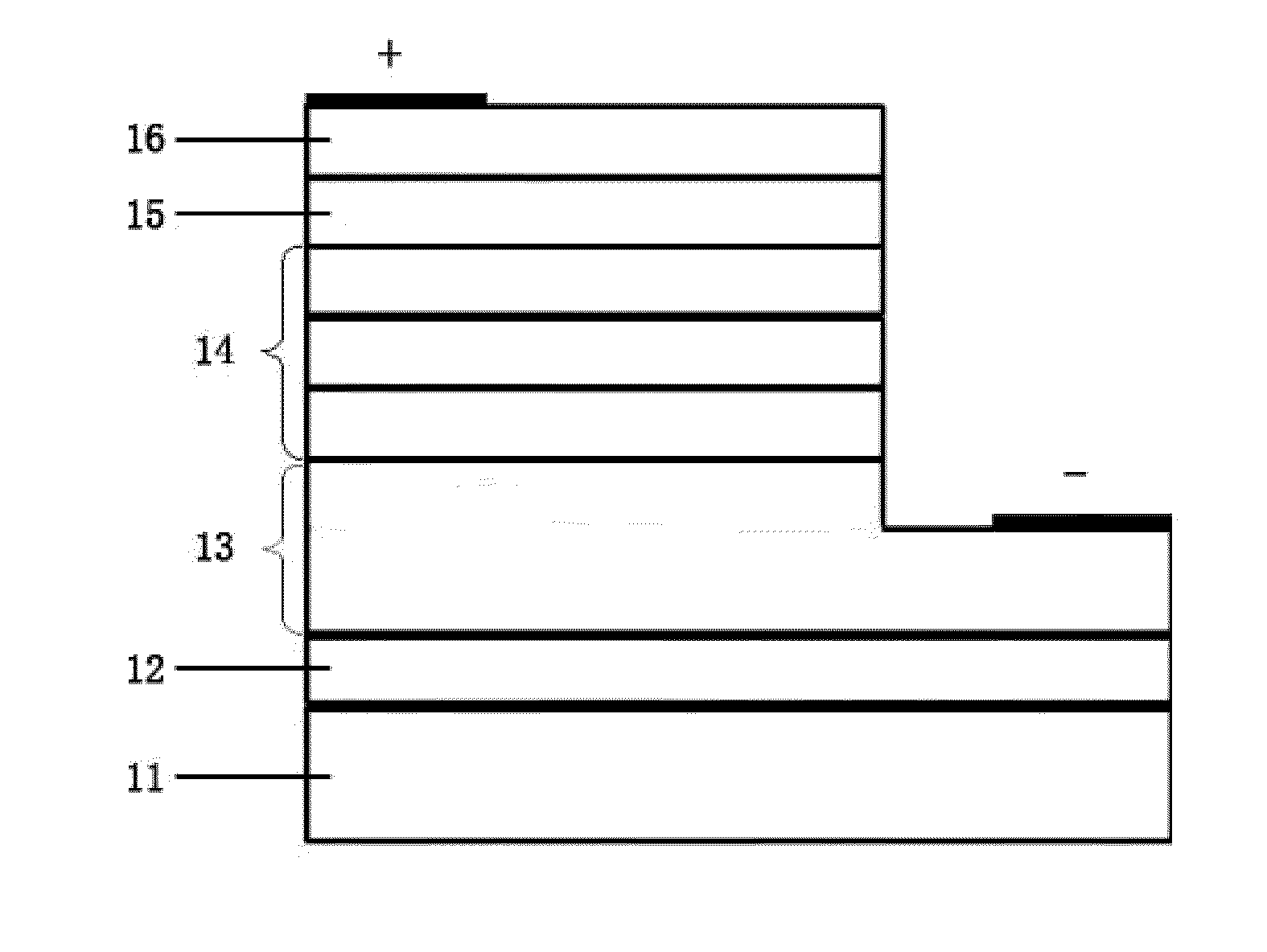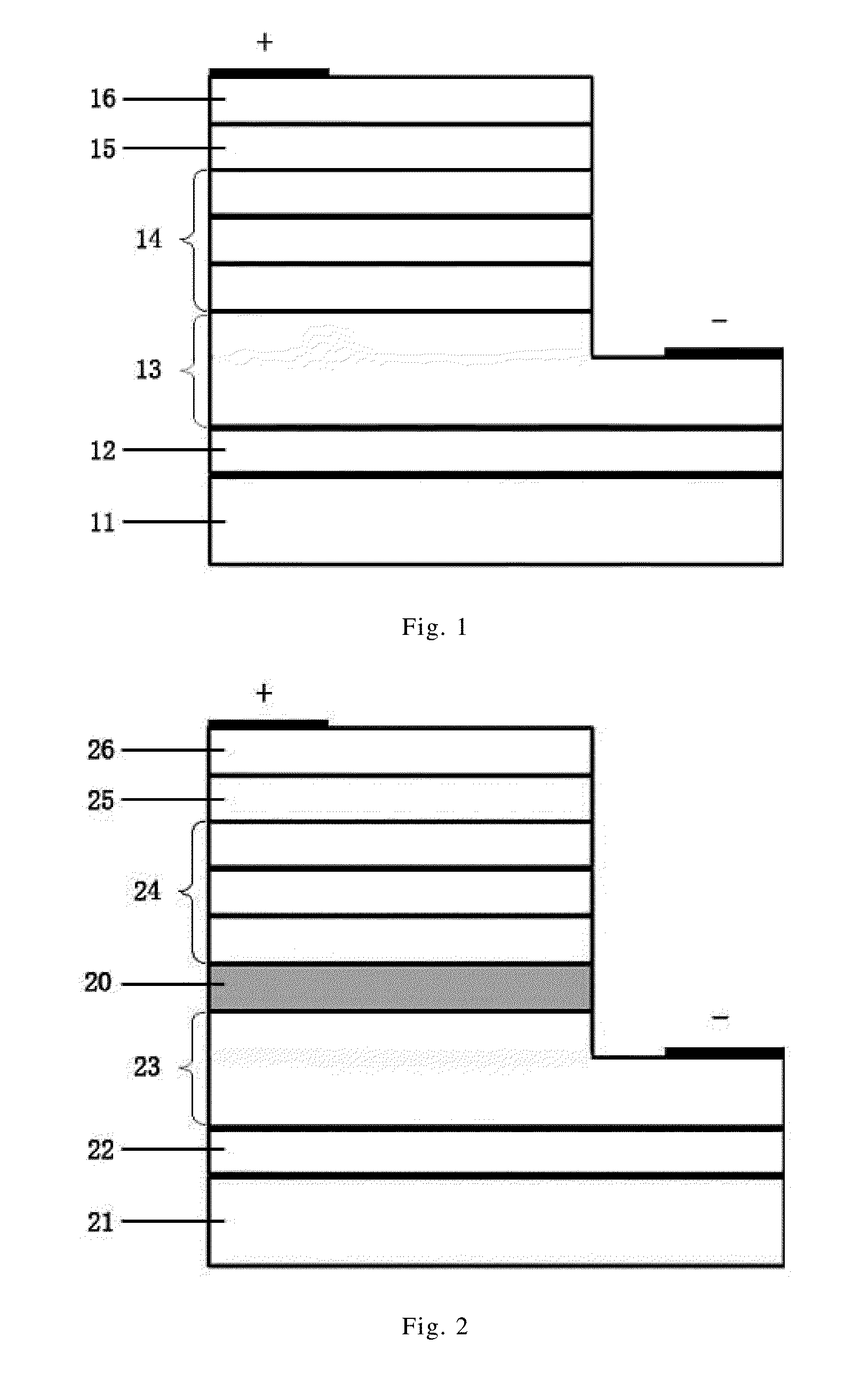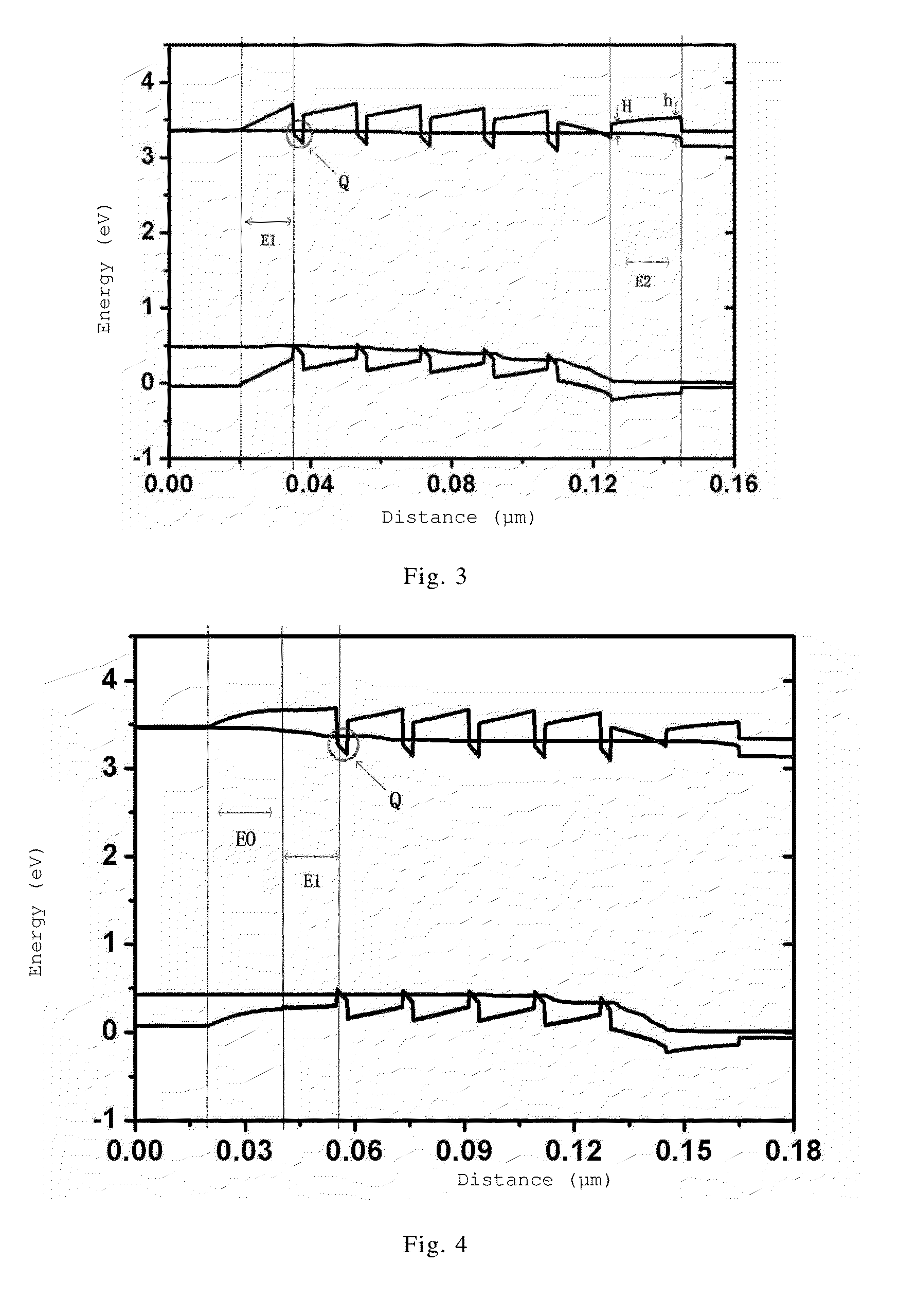Semiconductor epiaxial structure and light-emitting device thereof
a technology of semiconductors and epiaxial structures, which is applied in semiconductor devices, semiconductor lasers, laser details, etc., can solve the problems of limiting the improvement of device's photoelectric properties, methods still have many urgent problems to be solved, etc., and achieves the reduction of electron ground state level, overall auger recombination, and improved injection of carriers
- Summary
- Abstract
- Description
- Claims
- Application Information
AI Technical Summary
Benefits of technology
Problems solved by technology
Method used
Image
Examples
example i
[0067]As shown in FIG. 2, the epiaxial structure of the light-emitting diode comprises sequentially from bottom up: a substrate layer 21, a nucleation layer 22, a N-type electron injection layer 23, a band edge shaping layer 20, a multi-quantum well active region 24, an electron blocking layer 25 and a P-type hole injection layer 26. Relative to the prior art, the band edge shaping layer 20 is introduced between the N-type electron injection layer 23 and the multi-quantum well active region 24.
[0068]The thickness of the band edge shaping layer 20 is 1 nm˜100 nm, the material is P-type doped GaN, the doping concentration is 1×1017 cm−3 ˜5×1018 cm−3, and the dopant is Cp2Mg.
[0069]In this example, one most preferred selection is: the thickness of the band edge shaping layer 20 is 20 nm and the doping concentration is 5×1017 cm−3. The inventors have shown through actual tests that when it is the n-type doping or un-doping, and when the thickness is not 20 nm, the result is still optimiz...
example ii
[0074]As shown in FIG. 8, the epiaxial structure of the light-emitting diode comprises sequentially from bottom up: a substrate layer 31, a nucleation layer 32, a N-type electron injection layer 33, a multi-quantum well active region 34, a band edge shaping layer 30, an electron blocking layer 35 and a P-type hole injection layer 36. Relative to the prior art, the band edge shaping layer 30 is introduced between the electron blocking layer 35 and the multi-quantum well active region 34.
[0075]The thickness of the band edge shaping layer 30 is 1 nm˜300 nm, the material is P-type doped GaN, the doping concentration is 1×1017 cm−3 ˜5×1018 cm−3, and the dopant is Cp2Mg.
[0076]In this example, one most preferred selection is: the thickness of the band edge shaping layer 30 is 50 nm and the doping concentration is 3×1017 cm−3. The inventors have shown through actual tests that when it is the n-type doping or un-doping, and when the thickness is not 50 nm, the result is still optimized relat...
example iii
[0081]As shown in FIG. 12, the epiaxial structure of the light-emitting diode comprises sequentially from bottom up: a substrate layer 41, a nucleation layer 42, a N-type electron injection layer 43, a second band edge shaping layer 40b, a multi-quantum well active region 44, a first band edge shaping layer 40a, an electron blocking layer 45 and a P-type hole injection layer 46. Relative to the prior art, the second band edge shaping layer 40b is introduced between the N-type electron injection layer 43 and the multi-quantum well active region 44, and the first band edge shaping layer 40a is introduced between the electron blocking layer 45 and the multi-quantum well active region 44.
[0082]The thickness of the first band edge shaping layer 40a is 1 nm˜300 nm, the material is P-type doped GaN, the doping concentration is 1×1017 cm−3 ˜5×1018 cm−3, and the dopant is Cp2Mg. In this example, a preferred selection is that the thickness of the first band edge shaping layer 40a is 50 nm and...
PUM
 Login to View More
Login to View More Abstract
Description
Claims
Application Information
 Login to View More
Login to View More - R&D
- Intellectual Property
- Life Sciences
- Materials
- Tech Scout
- Unparalleled Data Quality
- Higher Quality Content
- 60% Fewer Hallucinations
Browse by: Latest US Patents, China's latest patents, Technical Efficacy Thesaurus, Application Domain, Technology Topic, Popular Technical Reports.
© 2025 PatSnap. All rights reserved.Legal|Privacy policy|Modern Slavery Act Transparency Statement|Sitemap|About US| Contact US: help@patsnap.com



